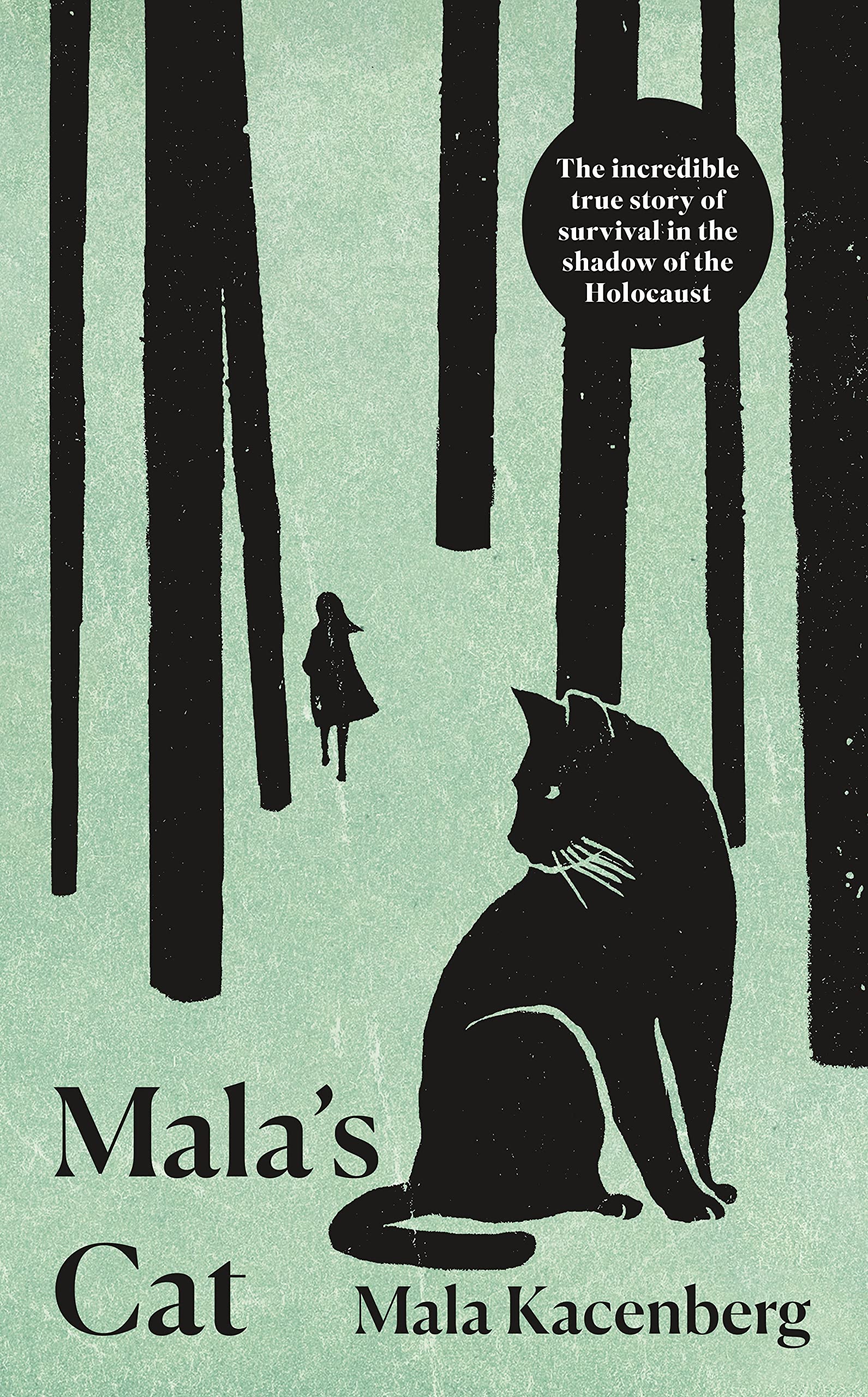Alone in a forest with only a cat for company - this is the deeply moving true story of one little girl's remarkable survival in the shadow of the Holocaust.
Growing up in the Polish village of Tarnogrod, on the fringes of a deep pine forest, Mala has the happiest childhood anyone could hope for.
But, when the Nazis invade, her beloved village becomes a ghetto and family and friends are reduced to starvation. Taking matters into her own hands, she bravely removes her yellow star, and sneaks out to the surrounding villages for food.
On her way back she receives a smuggled letter from her sister warning her to stay away: her loved ones have been rounded up for deportation. With only her cat, Malach, and the strength of the stories taught by her family, she must flee into the forest.
Malach becomes her family, her only respite from loneliness, a guide and reminder to stay hopeful even in the darkness.
With her guardian angel by her side, Mala must find a way to navigate the dangerous forests, outwit German soldiers and hostile villagers, to survive, against all the odds.
Comment: Unless I previously plan on choosing something for the GR challenge I participate annually, I tend to pick random books at he library. I still love to go there, even if they can't get many recent books that quickly. Anyway, last time I went, I've decided to bring this book along, and it helped it wasn't a big one which would demand a lasting commitment.
Mala was a happy young Jewish girl who had a pretty normal life with her family until everything changed with the Nazis occupying other countries, such as Poland. In a seemingly random situation, Mala escapes the terrible fate her family and so many other people she knew were sentenced to, and she starts living in the forest with her cat Malach, foraging into villages to find food. There are many obstacles in her way and even more dangers, with the possibility of capture at any moment, but Mala will use all her resilience, all the lessons her family had taught her and her own wit to defend herself and to be proactive in escaping the Germans...
This is labeled as a non-fiction memoir by Mala Kacenberg, a Polish woman who was a child and teenager during WWII and who was a Jewish survivor of the Holocaust. I had never heard of this woman nor about her having written a book, but the cat in the title was why I've decided to give it a go.
As far as WWII stories go, of course the theme alone would include certain devastating descriptions and references to unfair and criminal situations. Whether non fiction of fictional tales, books with this theme always seem to be somewhat emotional and there are details that are, sadly, repeated. Well, in reality this was the first thing I've noticed about this book because the repetition of what other books had included, somehow failed to make me emotional.
I think this happened due to narrative choices. Mala is the obvious narrator and while I can't say if this is really her personal style or because she didn't really write the words and only dictated them to someone or something, the narration feels detached. Everything was quite factual, which wouldn't have to be bad, and there aren't gory or violent descriptions either, but I still didn't feel much in sync with what was supposed to be the feeling related to this or that situation. Mala's descriptions of events and her own steps felt very practical and pragmatic despite the certain heartbreak she must be feeling, but that didn't' come through. Her "voice" remained too clinical.
 |
| Portuguese cover |
I won't go into validity of this or that assumption, but there are some passages that don't paint Mala as being as likable as that. I won't comment on what she felt or if she should have emphasized her suffering, but her testimony felt impersonal, which is odd indeed in a first person narration. It was also a little hard to accept she could have evaded the Germans for so long and often only because her cat was there to kind of warn her.
Speaking of the cat, I surely expected more of the cat, or better, of having the cat playing a bigger role. The cat felt like a prop to be honest, sometimes even seemed as if the cat was there so suddenly, out of nowhere and I was wondering where the cat had gone and how could she be there at that specific time... it seems as if the goal was to make the reader see the cat as an omen, almost as if she was magical and could help Mala at the perfect time. I really thought this would be more centered on her experience in the woods with the cat for company...

Whether the story is wholly true, or embellished to fit a narrative, it seems the writing itself isn't particularly good.
ReplyDeleteThat is my general sense too.
DeleteSome readers have also commented that it feels bad to criticize the book due to the content, but.... worthy content written/presented in a bad way is less than it should? Food for thought....